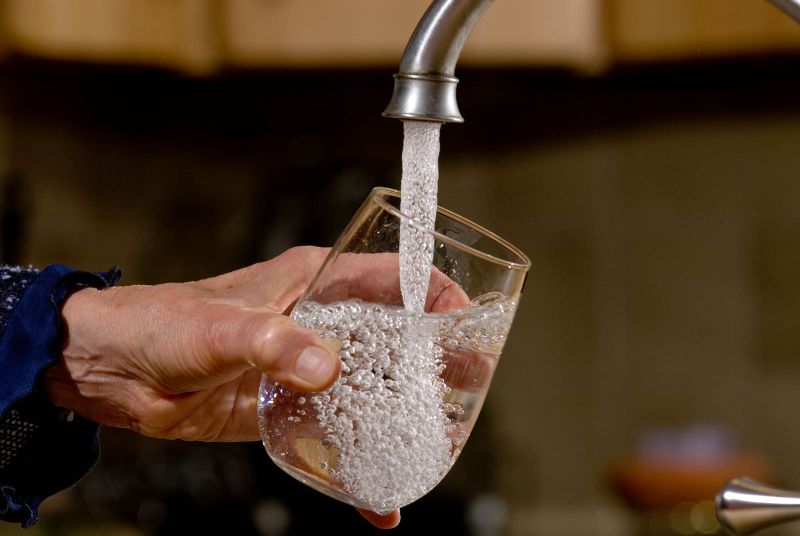Top 10 Tips to Select the Right System for Your Home
Are you planning to get a water softener? Well, water is one of the essential fluids on Earth. The drinking water on Earth is about 3% and out of which 0.3% is available in the form of groundwater. In the modern era of industries, we are polluting water so quickly that hard water problems are increased in 85% of homes nationwide.
So, what to do in such scenarios?
Well, water softeners are one of the solutions to remove minerals and other contaminants from water. This article revolves around the water softeners and tips related to it. So, let’s quickly get dive in and find out why water softeners are essential. There are plenty out there like Waterdrop RO water Filter help soften water.
What is a Water Softener?
A water softener assists you to soften the water by removing minerals which make the water hard. Now, water softening comes into play when water contains a significant amount of calcium as well as magnesium.
Types of Water Softeners
There are four different types of water softeners. No matter which type of water softener you use, always chooses one that has an NFS/ANSI 44 certification. Now, let’s quickly see the kind of water softeners.
i) Ion Exchange Softener ~ Salt Based
The ion exchange softener is connected with your plumbing system of the home. This water softener replaces calcium, magnesium, and other hard minerals from the water.
ii) Salt-Free Water Softener
The name itself clears a lot of things. This softener is free of salt and uses potassium choline to make water soft. However, this water softener is not as effective as an Ion Exchange water softener. Radically, a salt-free water softener is ideal for people who are concerned about sodium intake.
iii) Magnetic and Electronic Water Softener
This particular type of water softener is descaled. Basically, they reverse the electromagnetic properties of minerals, which make water hard.
iv) Dual Tank Water Softeners
The dual tank water softeners ensure that it works smoothly. However, during the recharging phase, this type of water softeners stop functioning. The dual tank water softeners have two tanks, and both work alternatively in case of recharging.
Planning to get Water Softener
Now before choosing the water softener, you should first ask yourself some questions like:-
- The design is suitable to ensure the home’s water.
- How much salt and water used in regeneration?
- Is there any after-sale service available?
Let’s move on to find out some of the things which you should consider before buying Water Softeners for your home or personal use.
i) Price of Water Softeners
So, before moving on, you should first decide how much money you want to spend on a water softener. You can spend around $350 to $3500 and more. Talking about Ion Exchange softener, it can cost you around $350 to $1000; however, the prices might vary.
Additionally, you need to pay operating costs as well. So, it’s advised that you must first decide your budget and then start finding the right water softener.
ii) Choose between Metered and Time-Based Regeneration
Nowadays, one of the most modern water softeners works with metered or Demand Initiated Regeneration. On the other hand, the timer-based softeners come with a time clock and present time and day of water consumption. In timer-based, the system always uses the same amount of salt and water.
Overall, the time-based regeneration cycle takes less time in comparison to metered ones. So, you have to decide what the requirement is, and one thing more is Time-Based Softeners is a little cheaper.
iii) Certification
It doesn’t matter which water softener you buy. It is always recommended to buy a NSF/ANSI certified water softener. The NFS/ANSI certification water softener substantiates the manufacturer’s performance claims.
Things standard certification includes are:-
- Material Safety
- Water Hardness Reduction
- Decrement of specific contaminants
- Drop-in rated pressure
Apart from NFS/ANSI certification, you can also go with the WQA Gold Seal. Avoid all the other water softener certification.
Once you have all the criteria and information you need, look into reviews of best water softener systems available in the range. If you don’t have the time to do so, search for known brands. For instance, Fleck is a renowned brand when it comes to salt based systems.
Frequently Asked Questions?
Q.1. How Can Water hardness be measured?
A.1. Well, the hardness of water is measured in terms of grains per gallon (gpg). Now, one grain of hardness is equal to 1/7000 pound of rock.
Q.2. How to determine water hardness?
A.2. To determine the water hardness, simply call your municipality in case you use the city water supply. If you don’t use the city water supply, then you can purchase a water test kit.
Q.3. How much electricity does water softener use?
A.3. A water softener uses as much as a digital alarm clock.
Q.4. What is the regeneration cycle?
A.4. The regeneration cycle is when a resin bed inside a water softener becomes coated with hard particles. The salt in the tank is mixed with incoming water to rid the resin bed of the hard particles.
The Conclusion
Look for the price, certification as well as regeneration cycle before buying water softeners. Without any doubt, water softeners are one of the essential factors to save water.
Hard water usually damages the appliances, clothing as well as other valuable objects. Now, in this article, I have mentioned the necessary things related to water softeners now, if you ask my opinions than I would suggest you first to rent a water softener and then buy as you learn how to operate and use it.
Do you use water softeners?
Share your experience with water softeners. If you have any queries or suggestions, leave a comment below.




